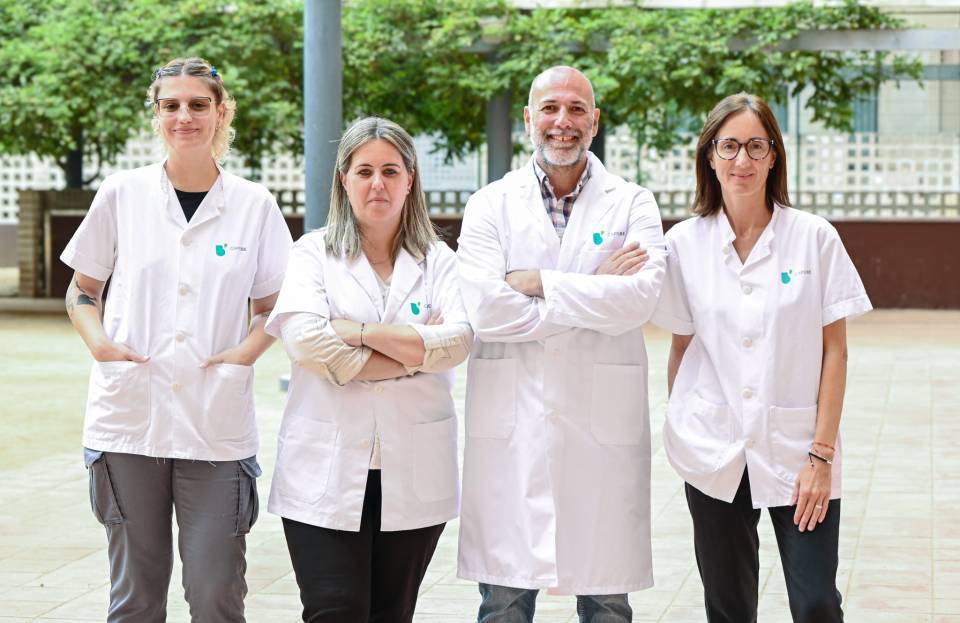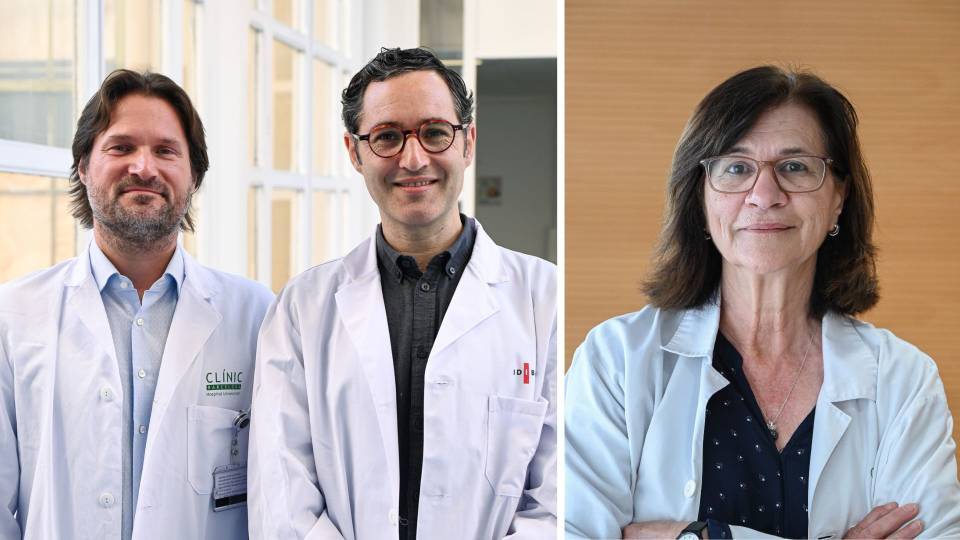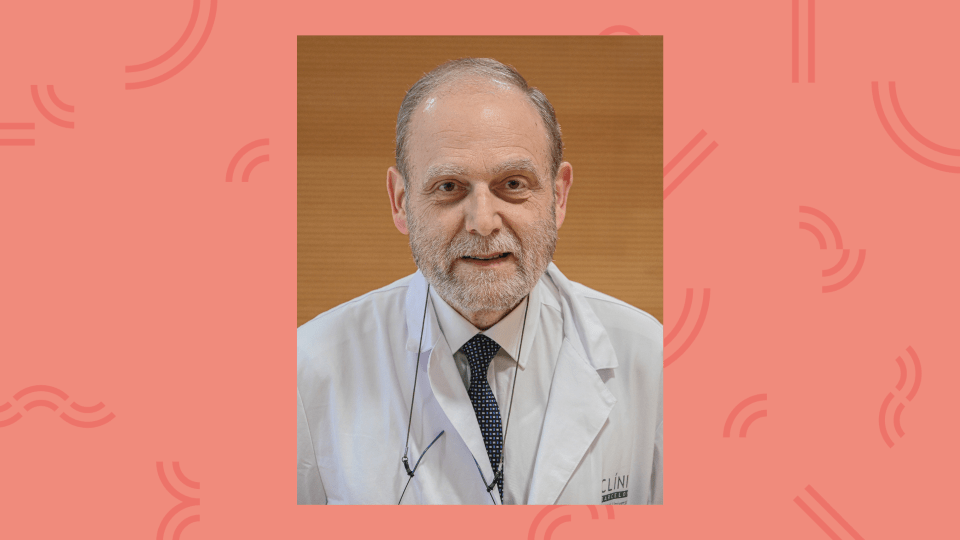The study was led by Luís González de Paz, who works at the CAPSBE (Consorci d’Atenció Primària de Salut Barcelona Esquerra) and is a member of IDIBAPS’ Primary healthcare transversal research group, and Lorena Montero, Gemma Gomis and Àngela Fauró, who are nurses at the CAPSBE. The I3PT (Institut d’Investigació i Innovació Parc Taulí) in Sabadell also participated.
Dysphagia: an underdiagnosed disorder
Dysphagia is a swallowing disorder that makes it difficult for food or liquids to pass from the pharynx to the oesophagus, with the risk that they end up in the lungs, often without the patients realising it. Moreover, people with dysphagia gradually tend to eat less. One of the first signs of dysphagia is that the patient coughs when drinking liquid, which indicates that it has entered the lungs instead of the digestive system.
Assessing dysphagia requires analysing the causes, conducting a clinical examination to detect symptoms and administering a test to objectify swallowing problems. However, most of those affected are elderly and problems with swallowing are often attributed to age. Caregivers, family members and healthcare staff tend to view such incidents as isolated, colloquially described as ‘food or liquid going down the wrong pipe’. Therefore, dysphagia often goes undetected, especially in the early stages, and is usually diagnosed after it has become quite advanced.
‘Dysphagia is serious because it can involve hospitalisation and problems that could have been avoided with early diagnosis and appropriate treatment’, explains Lorena Montero. ‘Treatment is based on changing the texture of food, especially liquids, which are thickened to make swallowing easier. Food combinations also have to be adapted. An action plan must be implemented with family members, caregivers and the affected person’, she adds.
‘We currently don’t know the true extent of the problem and lack a systematic screening programme,’ Luís Gonzalez de Paz explains. ‘Early diagnosis would prevent complications such as pneumonia, which often requires antibiotics that could have been avoided’, he says.
A study with over one thousand patients
A team of nurses at the CAPSBE, a consortium that manages three primary healthcare centres in Barcelona, found that many patients with dysphagia may never have been diagnosed. To quantify this silent health problem, a systematic screening programme for dysphagia in patients receiving home-based care was launched in 2022.
In September 2024, the journal Dysphagia published a study revealing the programme’s main conclusions. The study included 1,002 people receiving home-based care and living in Antiga Esquerra de l’Eixample, Nova Esquerra de l’Eixample and Les Corts, three of Barcelona’s neighbourhoods with the oldest residents. These patients, who are mostly elderly, often suffer from increasingly frequent diseases or disorders, such as dementia, or have reduced mobility that prevents them from travelling to healthcare centres so they need home-based care.
During their visits, nurses administered a modified volume-viscosity swallow test (MECV-V) to screen for dysphagia. This test assesses patients’ ability to swallow liquids of different viscosities. It also takes other indicators into account, such as basal oxygen saturation, clinical observations and whether the patient coughs while swallowing. All medical staff and nurses providing home-based care were also trained to treat dysphagia appropriately.
The results reveal that 25.95% of all patients participating in the programme suffered from dysphagia, much more than previously recorded. It was not known if 71.5% of the diagnosed patients had suffered from dysphagia before starting the programme.
The study also shows that the people with dysphagia were five times more likely to have had pneumonia, experienced coughing episodes and required more medical visits to their homes than the other patients in the home-base care programme.
‘The conclusions of the study indicate the urgent need to implement a systematic dysphagia screening program in other primary healthcare centres in Barcelona and Catalonia, especially in home-based care programmes, which serve much of the most vulnerable population. Underdiagnosis is likely a widespread problem in this group’, concludes González de Paz.
Link to the article: A Systematic Evaluation for Oropharyngeal Dysphagia in Non-institutionalized Elderly Patients with Home Care-based in the Community




